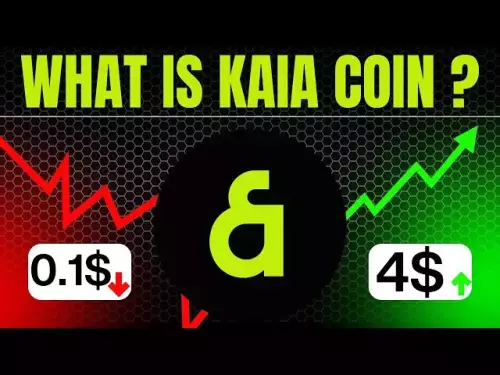 |
|
 |
|
 |
|
 |
|
 |
|
 |
|
 |
|
 |
|
 |
|
 |
|
 |
|
 |
|
 |
|
 |
|
 |
|
Cryptocurrency News Articles
Polkadot's pUSD Stablecoin: A Second Shot at DeFi Glory?
Sep 29, 2025 at 09:00 pm
Polkadot's launching pUSD to boost its DeFi, but can it avoid the pitfalls of Acala's aUSD? Accountability and DOT-only backing raise eyebrows.

Polkadot's pUSD Stablecoin: A Second Shot at DeFi Glory?
Polkadot is taking another swing at the stablecoin game with pUSD, aiming to juice its DeFi ecosystem and ditch the reliance on the big boys like USDT and USDC. But with concerns lingering about past stumbles, can pUSD really stick the landing?
The Promise of pUSD
The idea is simple: an over-collateralized stablecoin, backed entirely by Polkadot's native DOT token. This gives Polkadot more control over its financial destiny. Proponents envision pUSD as the key to unlocking Polkadot's DeFi potential, fostering autonomy, and creating a more robust ecosystem.
Echoes of aUSD: A Cause for Concern?
However, the shadow of Acala's failed aUSD project looms large. pUSD is built on Honzon, the same framework that aUSD used before its dramatic collapse. This has some community members understandably nervous. Memories of lost trust, accusations of deflected blame, and uncompensated users are still fresh.
The big question: Can Polkadot avoid repeating history? Clear accountability, especially from the Technical Council, is paramount. As one community member put it, without those assurances, "the risk of repeating past mistakes is too great."
DOT-Only Backing: A Risky Move?
Beyond the Acala connection, pUSD faces another challenge: its sole backing by DOT. While over-collateralization offers some protection, relying on a single asset can lead to liquidation cascades and heavy sell pressure if the market turns sour. MakerDAO's DAI learned this lesson early, diversifying its collateral to include a basket of crypto and real-world assets.
Some argue that Polkadot already has better native options, like HOLLAR, specifically designed for appchains. These critics suggest Polkadot should leverage its unique strengths instead of rehashing a standard EVM model.
pUSD vs. the Giants
Even if pUSD overcomes these hurdles, it faces an uphill battle against established stablecoins like Tether (USDT) and Circle's USDC. Tether still dominates the market with a massive market cap. Can pUSD truly compete?
My Take: Cautious Optimism
pUSD represents a bold move by Polkadot, but success is far from guaranteed. The community's concerns are valid and must be addressed transparently. If Polkadot can learn from the mistakes of the past, establish clear accountability, and demonstrate the resilience of its DOT-only model, pUSD could become a valuable asset for the ecosystem. However, if it fails to do so, it risks further eroding trust and hindering Polkadot's DeFi ambitions.
Ultimately, pUSD's fate rests on Polkadot's ability to build a stable, secure, and trustworthy solution. Only time will tell if it can pull it off. Let's hope they dot their i's and cross their t's this time around!
Disclaimer:info@kdj.com
The information provided is not trading advice. kdj.com does not assume any responsibility for any investments made based on the information provided in this article. Cryptocurrencies are highly volatile and it is highly recommended that you invest with caution after thorough research!
If you believe that the content used on this website infringes your copyright, please contact us immediately (info@kdj.com) and we will delete it promptly.























![\SOREVILLE\ by Zoogie 100% [1 Coin] \SOREVILLE\ by Zoogie 100% [1 Coin]](/uploads/2025/10/15/cryptocurrencies-news/videos/soreville-zoogie-coin/68eef24487e4e_image_500_375.webp)
![Staking ATH: How To Stake $ATH in October 2025 with 523% APY — [Step-By-Step Guide] Staking ATH: How To Stake $ATH in October 2025 with 523% APY — [Step-By-Step Guide]](/uploads/2025/10/15/cryptocurrencies-news/videos/staking-ath-stake-ath-october-apy-stepstep-guide/68eef94d80903_image_500_375.webp)
































